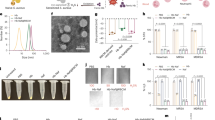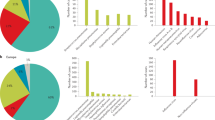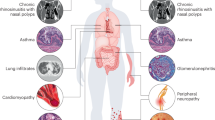Abstract
The influence of surgical stress on resistance to i.v. challenge with Walker 256 tumour cells was investigated in rats, with respect to the functional state of the reticuloendothelial system (RES). Phagocytic activity of the RES was evaluated by colloid (gelatinized [131I] "RE test lipid emulsion") clearance, and opsonin levels were determined by bioassay. Reticuloendothelial clearance capacity was significantly (P less than 0-05) depressed 60 min following surgery (coeliotomy plus jejunal enterotomy) as quantified by both humoral and cellular parameters of RE function. Phagocytic depression was primarily due to impaired hepatic Kupffer cell function and related to a deficiency in the phagocytic supporting capacity of plasma, also referred to as opsonic or recognition factor (RF) capacity. During the postoperative period of RES colloid clearance depression, pulmonary localization of the blood-borne test particulate matter increased. Rats challenged with 51Cr-labelled viable tumour cells at a dose of 1-0 X 106 i.v., either prior to or during the postoperative period of RE depression, manifested a significant (P less than 0-05) increment in pulmonary localization of the viable tumour cells, and a decrease (P less than 0-05) in hepatic clearance. Evaluation of survival patterns demonstrated a significant (P less than 0-01) decrease in host resistance to i.v. tumour cell challenge (2 X 103 cells) during the postoperative period of RE depression and hypo-opsonaemia. Sham-anaesthetized control animals survived 17-9 +/- 0-8 days, while animals challenged during the period of RE depression survived 7-9 +/- 0-4 days. An increased incidence of respiratory distress and nasal discharge was observed in the animals with impaired survival. Thus, surgical manipulation may transiently compromise RES systemic host defence and may be reflected in an increment in the pulmonary localization of blood-borne tumour cells. The relationship of this altered pattern of tumour cell distribution to the impaired survival remains to be determined, and warrants investigations.
This is a preview of subscription content, access via your institution
Access options
Subscribe to this journal
Receive 24 print issues and online access
$259.00 per year
only $10.79 per issue
Buy this article
- Purchase on Springer Link
- Instant access to full article PDF
Prices may be subject to local taxes which are calculated during checkout
Similar content being viewed by others
Rights and permissions
About this article
Cite this article
Saba, T., Antikatzides, T. Decreased resistance to intravenous tumour-cell challenge during reticuloendothelial depression following surgery1. Br J Cancer 34, 381–389 (1976). https://doi.org/10.1038/bjc.1976.181
Issue Date:
DOI: https://doi.org/10.1038/bjc.1976.181
This article is cited by
-
Early peritoneal macrophage function after laparoscopic surgery compared with laparotomy in a mouse mode
Surgical Endoscopy (2005)
-
Metabolism and immunology in laparoscopy
Surgical Endoscopy (1998)
-
Liposomal muramyl dipeptide therapy of experimental M5076 liver metastases in mice
Cancer Immunology Immunotherapy (1991)
-
Kupffer cells and liver metastasis
CANCER AND METASTASIS REVIEW (1989)
-
Fibronectin
Klinische Wochenschrift (1984)



